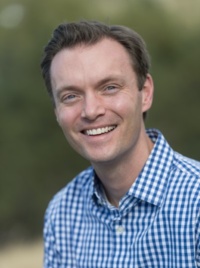Russ Schumacher
One key challenge facing the Society is the responsibility that the AMS community and its members have to produce the best possible weather and climate information, and to make that information accessible and usable by all. This challenge is made even more critical by the disproportionate impacts that extreme weather and climate change will continue to have on vulnerable communities. Yet by continuing the momentum that AMS has created to encourage collaboration between the government, academic, and private sectors on these important issues, there is huge potential to advance how we provide all communities with the detailed information they need.
This connects to a 2nd challenge: the need to continue involving students and early-career scientists and professionals in the AMS. They represent the future of the Society and are critical to its future success. They will also provide the solutions to the first challenge. The landscape of communication and knowledge production continues to evolve rapidly, and early-career AMS members are well positioned to make important advances in these areas. I recall attending the very first AMS Student Conference when I was a graduate student, and this event has since evolved into a huge success with enthusiastic students attending each year. But not all of these young people remain engaged in AMS after starting their careers, in part because there can be barriers to participation early in one’s career. The AMS must not miss the opportunity to incorporate the innovation and enthusiasm that early-career scientists and professionals can contribute.
Since first joining as a student, I have considered AMS as my “home” organization. I’ve seen the personal and professional benefits it can provide to its members when it is at its best, and I look forward to serving the Society to help it reach its full potential.
Russ Schumacher is professor in the Department of Atmospheric Science at Colorado State University, and serves as the Colorado State Climatologist and Director of the Colorado Climate Center. He received his B.S. in meteorology and humanities from Valparaiso University, and M.S. and Ph.D. degrees in atmospheric science from Colorado State University.
Working closely with graduate students, Russ’s research career has centered on advancing the understanding and prediction of high-impact weather systems. A particular focus has been on storms that produce extreme precipitation, using a combination of observations and models. His research group developed a forecasting system that uses machine learning to generate probabilistic predictions of excessive rainfall and severe weather, known as “Colorado State University-Machine Learning Probabilities”, which is now used operationally at NOAA’s national centers and throughout the weather enterprise. He has mentored 15 M.S. students and 12 Ph.D. students, with advisees going on to successful positions across academia, the private sector, and military service.
As Colorado State Climatologist, Russ and the Colorado Climate Center team provide actionable weather and climate information to a diverse group of stakeholders that includes state government agencies, agricultural producers, water managers, and the general public. He oversees the highly successful Community Collaborative Rain, Hail, and Snow (CoCoRaHS) network, as well as the Colorado Agricultural Meteorological Network (CoAgMET).
Russ has been active in numerous AMS programs, including serving as Editor of Monthly Weather Review since 2016, co-chairing the program committee for the 2017 Annual Meeting, and chairing the Atmospheric Research Awards committee in 2024. Russ received the CAREER award from the National Science Foundation in 2010, and in 2021 he received the Clarence Leroy Meisinger early-career research award from the AMS.
